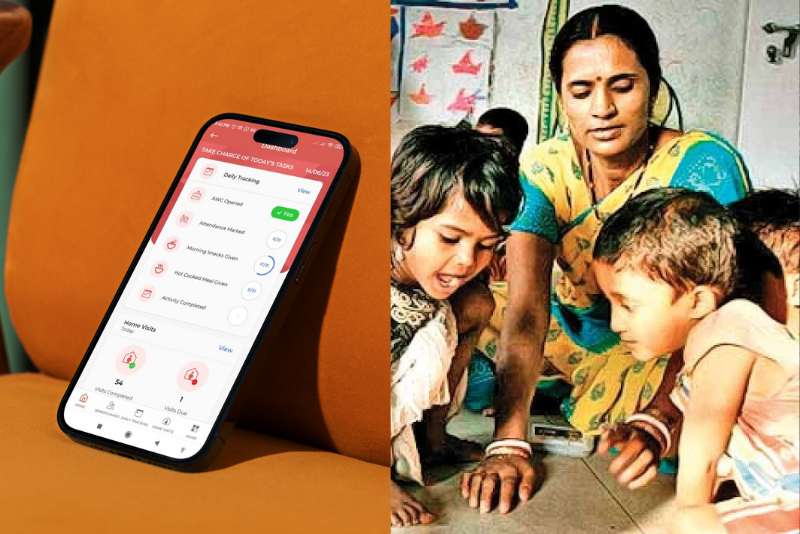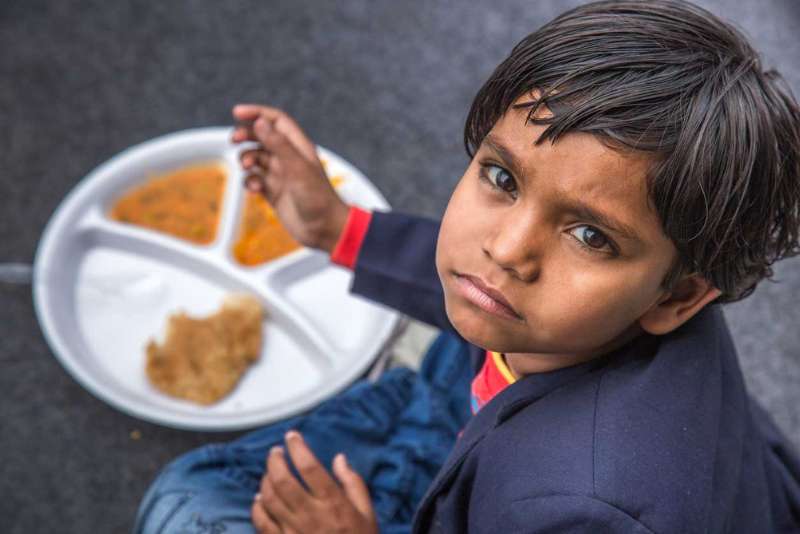
Gangtokian News Desk: India’s Poshan Tracker app, launched in 2021 by the Ministry of Women and Child Development, was hailed as a solution to combat malnutrition in India with over 4.3 million malnourished children. However, child care workers tasked with its daily use have voiced their concerns, citing difficulties and inefficiencies in the system.
A Mandate Met with Challenges
Child care workers, commonly known as Anganwadi workers, are mandated to update the Poshan Tracker app regularly. However, many of them face obstacles that hinder their ability to fulfill this mandate effectively.
The Smartphone Conundrum
One significant challenge is the unavailability of government-sponsored smartphones. Workers were initially promised phones after purchasing SIM cards, but these smartphones were never provided. As a result, many dedicated Anganwadi workers, like Poonam from Jharkhand, had to purchase smartphones out of their own pockets to keep their jobs.
An Overburdening App
The Poshan Tracker app requires child care workers to record various activities, from attendance to food distribution, geotagging, and uploading children’s data such as height and weight. Since March 2021, worker pay has been linked to their activity on the app. However, many workers find it burdensome and inefficient.
Shortcomings and Frustrations
Several Anganwadi workers have reported that the data entered into the app does not align with the actual delivery of food supplies. This discrepancy raises questions about the app’s effectiveness in addressing malnutrition.
The Need for a Holistic Approach
Experts like Swati Narayan from the Right to Food campaign argue that the app’s focus on monitoring may not be the most effective strategy to combat malnutrition. Instead, they suggest investing in providing nutritious food directly to children.
Data Collection with Limited Impact
While the Poshan Tracker collects data, there are concerns about its utilization for decision-making. Critics argue that the app primarily collects accounting data and does not provide meaningful insights into reducing malnutrition.
Design and Language Barriers
The app’s design limitations pose challenges as well. Once data is entered, there is no provision for editing, and the app lacks mechanisms to verify faulty data. Furthermore, the interface primarily being in English creates difficulties for many rural workers who are not proficient in the language.
Mixed Reactions
While some officials find the Poshan Tracker helpful for monitoring progress and addressing issues in real-time, there is a growing call for a Hindi version of the app to enhance accessibility.

Takeaways
As India grapples with child malnutrition, the Poshan Tracker app has emerged as a double-edged sword. While it offers real-time monitoring capabilities, it faces criticism for its usability challenges and the mismatch between recorded data and actual food supplies. For meaningful progress in addressing malnutrition, experts and workers alike advocate for a more holistic approach that prioritizes providing adequate nutrition to children.
Gangtokian Web Team, 24/09/23

















































